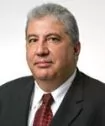In another sign that Cuba is preparing to further open its economy, on January 20, 2013, Renesys, a U.S. company that monitors internet traffic, reported that the fiber optic cable between Cuba and Venezuela was active. Renesys states that it first detected the signs of change in Cuba's Internet connectivity on January 14th and has, thereafter, reported continued increased usage. Ten days later, on January 24th, Cuba's state telecommunications monopoly, ETECSA, confirmed that the fiber optic cable was working. In a statement published in Granma, the state-run newspaper, ETECSA said that the cable had been operational since August for international telephone traffic, and that data tests have been conducted on the cable since January 10th. ETECSA, however, cautioned that even after the fiber optic cable is fully operational it will not mean that there will be an automatic increase of internet access.
The island's internet service has been through satellite links which are much slower than fiber optic cables. In 2007, state-owned telecommunications companies from Cuba and Venezuela united to lay a cable between the two nations, linking Cuba directly to the internet. The cable, called the "Alternativa Bolivariana para los Pueblos de nuestra América" (Bolivian alternative for the Peoples of our America) or ALBA-1 for short, was laid under the Caribbean from Venezuela to Cuba in 2010. Venezuela financed the $70 million cable, which spans 1,012 miles from a location near Venezuela's La Guaira port to the eastern Cuban town of Siboney. The cable was connected to Cuba in February 2011. According to Reuters, when fully operational, the new cable will provide download speeds 3,000 times faster than Cuba's current satellite links and will be able to handle millions of phone calls simultaneously.
However, even though Cuba announced that the cable had been completed and activation was scheduled for July 2011, the cable remained dormant under the Caribbean. Neither the Cuban nor the Venezuelan government commented on why the cable had not been turned on, leading to some speculation that corruption during construction had stymied the project.
Others, however, speculate that the Cuban government chose not to immediately activate the cable as part of its tight control over internet usage on the island. Cuba is the last country in the western hemisphere to obtain internet service through a fiber-optic cable, according to Akamai Technologies Inc., and has the second-lowest internet connectivity rates in the world. Rumors that the Cuban government was intentionally withholding activation of the cable were given some credence by Venezuela's science and technology minister, Jorge Arreaza, who, in May 2012, told reporters that the cable "is absolutely operational. It will depend on Cuba's government how it uses it ... but we know that the undersea cable is in full operation."
The ALBA-1 fiber optic cable brings Cuba into the 21st Century by allowing the Caribbean Island to engage in high bandwidth communications that are critical to opening up its economy. For example, business and banking transactions need not be hindered by slow and inefficient dial-up internet service. The fiber optic cable is one additional step in building the foundation for the market economy expounded by Raul Castro.
The fiber optic cable may also represent an important step towards normalizing relations with the United States. Cuba may also elect to go one step further and open the internet to its citizens. Presently, only a small number of academics, journalists and other professionals in Cuba have access to the internet. Cuba has stated that its priority will be to continue to build public telecommunications centers and improve internet access at schools, hospitals and scientific institutions, but the cable can also be used to provide a medium for increased dialogue within Cuba and beyond. The unlocking of the internet to the Cuban populace is an act that may stimulate action by a second-term Obama administration unencumbered by the prospect of another election.
This article is for general information and does not include full legal analysis of the matters presented. It should not be construed or relied upon as legal advice or legal opinion on any specific facts or circumstances. The description of the results of any specific case or transaction contained herein does not mean or suggest that similar results can or could be obtained in any other matter. Each legal matter should be considered to be unique and subject to varying results. The invitation to contact the authors or attorneys in our firm is not a solicitation to provide professional services and should not be construed as a statement as to any availability to perform legal services in any jurisdiction in which such attorney is not permitted to practice.
Duane Morris LLP, a full-service law firm with more than 700 attorneys in 24 offices in the United States and internationally, offers innovative solutions to the legal and business challenges presented by today's evolving global markets. Duane Morris LLP, a full-service law firm with more than 700 attorneys in 24 offices in the United States and internationally, offers innovative solutions to the legal and business challenges presented by today's evolving global markets. The Duane Morris Institute provides training workshops for HR professionals, in-house counsel, benefits administrators and senior managers.


